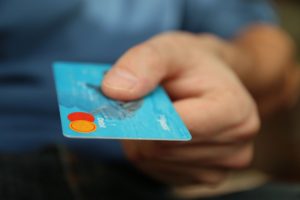Can You See These 5 Stealthy Debts In Your Life?
In today’s culture, debt is normal. Everyone has it. It’s used as a way to live beyond your means, to extend your lifestyle to afford that which you do not have the cash to pay for. How much debt do you have? The answer to this question may be different than you think. To answer, you have to account for ALL debt, both good and bad.
According to research, many Americans will underestimate their credit card debt by as much as 40% and will underestimate their student loans by as much as 25%. There could be many reasons for this – not understanding the debts, not opening the bills often enough, or not taking the time to add them all up.
Others may not understand how much debt they have because of our culture’s tendency to view certain debt items as good debts and bad debts. In reality, debt is debt. Bankers and salesmen will tell you whatever it takes to get you to purchase their product, even if it means going into debt to do so. Don’t fall victim to it. Instead, recognize these items as debt, both good and bad.
1. Mortgages 
Mortgages are most commonly referred to as “good” debt. They’re a long-term investment, the interest is tax-deductible, and homes typically appreciate in value. You’re seen as leveraging your money in the long run, and your home is your biggest asset.
But, a mortgage is still debt. There’s still a degree of risk involved. The home could depreciate, leaving you underwater. Your family could face a crisis, leaving you unable to pay the bills. Regardless of the long-term investment, there is still risk associated with owning a home, and a mortgage is still debt. Ultimately, cash up front is always the best way to pay.
2. Car payments 
Car loans are the most avoidable form of debt, but also, unfortunately, the most common form of debt. Our culture teaches that it’s acceptable to have a car loan – to drive a brand new car, as long as you can make the $500 payments. It’s not really debt, because it’s an unavoidable expense in our daily lives. But the reality is, vehicle loans are one of the worst forms of debt you can incur. When you buy a car, it’s value decreases as soon as you drive it off the lot. It is not a long-term investment, and there is no benefit to be had from them. There is more benefit from buying a reliable, used car with cash in the long term.
3. Credit cards 
Credit cards are the biggest impact on your overall debt ratio. They are particularly dangerous to your mentality towards money because they can cause you to over-spend beyond your means. Credit cards are dangerous because all too often, people have the tendency to think they can spend now, pay back later with credit cards. They earn rewards, they have low-interest rates, balance transfer discounts, etc. They can be tempting to use, especially under dire circumstances.
In emergencies, however, it’s better to have a cash emergency fund in place. Credit cards tend to have high-interest rates, and the rewards don’t balance out the costs.
4. Student loans 
Student loans are a huge addition to your overall debt. Often times when pursuing a degree, they can be seen as unavoidable. This may be why we tend to forget them in our debt calculations. However, they are still debt. Student loans accrue interest, and they are borrowed money from a lender.
Often times, they can even be avoided when paying for a degree. There are options available – it will take time. For instance, apply for grants and scholarships available in your area. Try to find a job that offers tuition reimbursement for employees, to help cover part of the cost of tuition. Another option is to take core classes at a community college instead of a university. They are offered at a lower cost than university credits and will transfer to the university for degree completion.
If you’ve completed your degree and have large student loans with high interest rates, consider consolidating them for a lower payment at a lower rate. This may allow you to pay them off quicker using the debt snowball method.
5. interest-free deals 
Have you ever been offered a no-interest, $0 down, same as cash deal at a department store? Buy a new couch, bed, or technology from a store, guaranteed approval, with 0% interest, $0 down for 24 months, same as cash deal. These are CREDIT lines or loans the stores offer as a financing option for their products. To get approval, you must qualify with good credit – they will run your credit report, and add an item to your overall debt. For a bed? A couch? Or a new tv?! These are luxury items, not a need. They can wait.
Instead, wait 6 months, save cash, and negotiate the sale price with cash. You’ll be better off in the long run, and you won’t have any additional debt. Cash purchases are always better than credit.
Overall, debt can be avoided. Despite what our culture says, debt is not a necessary part of life. Cash saves you money every time. You will pay less than the asking price, save money in interest, and you will own the item outright every time. Avoid these debt traps, and you’ll be on your way to a finance free life.

